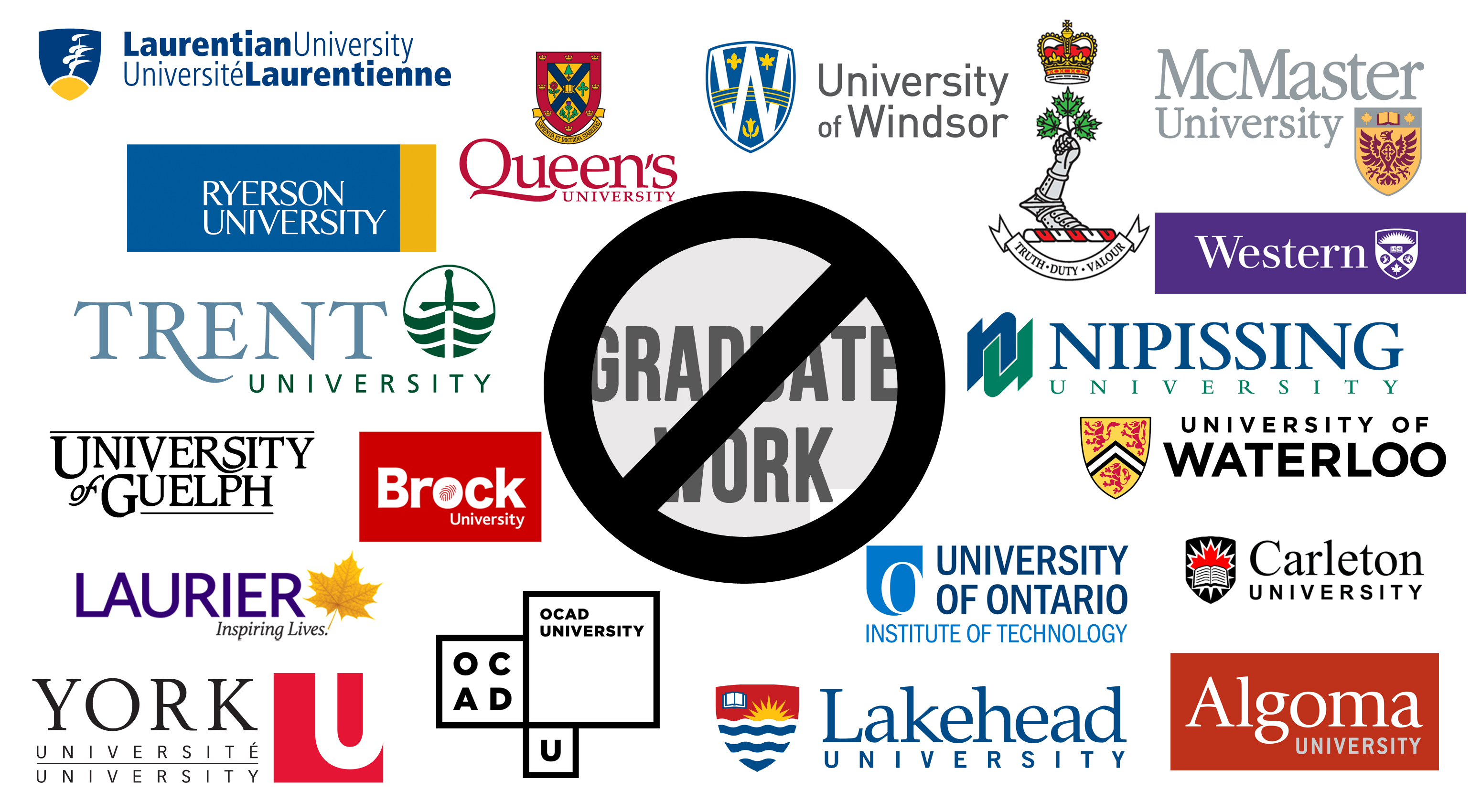Work restrictions brought to light with low GSAÉD candidate turnout
In the recent Graduate Students’ Association (GSAÉD) election, each executive position was uncontested. According to Shawn Philip Hunsdale, advocacy and communications coordinator at the GSAÉD, one reason for the low level of participation was the fear that the positions would require more than 10 hours of work per week.
The University of Ottawa is one of 18 post-secondary institutes in Ontario that belong to the Ontario Council on Graduate Studies (OCGS), which stipulates in its bylaws that graduate students must not work more than 10 hours per week.
In accordance with this bylaw, the U of O’s Faculty of Graduate and Postdoctoral Studies (FGPS) does not allow students to work on average more than 10 hours per week—or 170 hours per semester—either on or off campus.
Danielle Bennett, interim associate registrar for the FGPS, said the reason for the 10-hour rule is to keep the university aligned with the OCGS bylaws.
“The OCGS has long had this notion that full-time work and full-time studying are incompatible one with the other,” said Bennett. “That’s one way that we articulate that we’re lining up and that we’re just showing our agreement and our belief in that bylaw.”
The bylaws of OCGS are currently under review and are inaccessible through their website at present, said Bennett; however, they will be available once all modifications have been completed, although the 10-hour rule will remain.
Lakehead University, another member institute, provides information for the regulation.
They state that in 1994 the government requested the OCGS publicly confirm its support for the 10-hour rule, which the organization did in 1994, and later reaffirmed in 2000 and 2005.
According to Lakehead’s site, the reason for this rule was expressed as “too much time spent on employment activities diverts time and energy from the program of study and research, and delays completion.”
Students are able to apply for exemption, which would allow successful applicants to increase their working hours up to 25 per week. Bennett said the process has been simplified, as students were previously required to place a request with the dean of FGPS. Now, students only require approval from their academic unit and the Graduate Studies Office.

Graphic: Kim Wiens.
The University of Western Ontario (UWO) is also a member of OCGS, and its union for teaching assistants (TA) and postdoctoral studies, PSAC Local 610, said the 10-hour rule can also be used to protect TAs from issues like increased working hours without accompanied increased pay, as well as to ensure that students “progress through their studies as expected by their department.”
PSAC Local 610’s executive committee met with UWO’s vice-provost of graduate and postdoctoral studies, Linda Miller, after members brought concerns over enforcement of the 10-hour regulation to union. However, PSAC states that in the end it is “not an issue the Local can formally grieve against the employer.”
Hunsdale said if a student wanted to pursue other interests while studying, such as starting a family or working, it could cause costly delays for the province.
“It could then extend your time to completion, which would mean that you’re tied up with that one professor and that means nobody else can get them and so they don’t push enough people through the system to show the deliverables to the government,” he said.
There is some ambiguity as to the consequences of exceeding 10 hours of work. Bennett said the university is not in the habit of policing students, and the only consequence would be to the students themselves, such as their education, work or even health suffering.
However, Hunsdale said that in the event a student is not making sufficient progress in their studies while working more than 10 hours a week, this could be seen as a reason for removal from the program.
The university’s procedural rules state that exceptions to the rule will only be granted “in cases in which students are making, and will continue to make, normal progress in their studies” and under no circumstances will a request be considered “on the grounds that the student cannot complete his studies within the time limit due to the exception granted to work more than 10 hours per week.”





